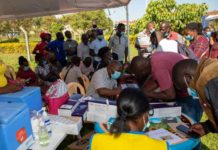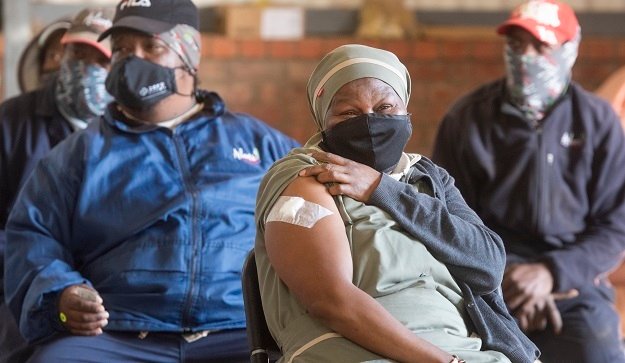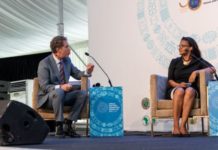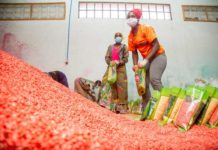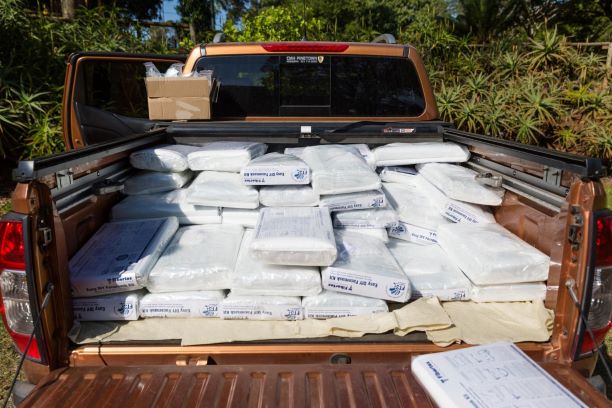
Fibertex FT3 DIY facemasks donated to charities to encourage home-grown businesses and to protect lives
Fibertex FT3 fabric facemask kits – which comprise every component required to make over 50 three-ply washable, reusable and durable masks for children and adults – have been well-received by retail outlets, the domestic sector, as well as charities, entrepreneurs and rural communities.
These do-it-yourself facemask kits consist of three layers of chemical-free (no chemical binders) fabric, sufficient elastic and a spool of cotton, complete with two spare filters per mask. These packs are supplied with a step-by-step pattern, that even those who are unfamiliar with a needle and thread are able to follow and those without a sewing machine can complete.
“The Fibertex DIY facemask initiative, which was launched recently to help the people of our country protect themselves during this frightening time of COVID-19, forms part of our commitment to making life better for all South Africans,” says Clive Hitchcock, CEO, Fibertex SA, specialists in high-performance nonwovens. “Our facemask DIY project goes a lot further than providing the materials required to make a mask at home. In conjunction with various businesses, churches, charities and welfare organisations, we hope to instill a sense of entrepreneurial spirit and a positive drive in communities, to kick-start little businesses and to encourage people to keep sewing, even after this crisis has passed.
“But for now, when social distancing is so critical, there is no need to go to different shops in search of all the required facemask components. Everything that’s needed is already in the pack, including a ready-made mask that the do-it-yourselfer should put on before starting to sew. This mask also illustrates how the completed mask should look.
“A clear intention of this project is to enable anyone to create a mask, without having to own a sewing machine. We encourage individuals to generate some income from within their own home, by supplying urgently needed masks to the immediate community.
“Fibertex hopes to make an impact through economic upliftment by enabling all South Africans to provide a necessary product, exactly where it is needed. Already, we have seen the wonderful generosity of the South African spirit arise, as numerous individuals and organisations have stepped forward to purchase products for a donation as “seed capital” to launch micro-businesses in vulnerable communities.”
FT3 facemask kits come with easy-to-follow cut and sew instructions in English, Zulu, Xhosa and Afrikaans. Guidelines for the correct use of masks and recommended care instructions are also included and are also accessible through the newly-created website (www.FT3mask.com)
According to Fibertex specialists, facemasks manufactured from inferior components do not provide the necessary protection to prevent the transfer of the Coronavirus. It is a concern that inadequate facemasks could create a feeling of false security, further endangering the wearer and those around them.
Fibertex recruited the services of a local pharmacist – who not only has extensive experience in TB and HIV research, but is also familiar with clothing design and manufacture – to develop FT3 facemasks. Critical factors considered in the design included maximum protection, durability and comfort, as well as no irritation to sensitive skin. It is also important that masks maintain their shape over time, so that people are able to breathe easily during extended periods of wear.
The three layers of Fibertex materials that are used to make up FT3 facemasks, are 100% locally produced at the Fibertex KZN plant, in line with strict quality and health standards, including the requirements of the South African Health Department. All fabric has also been subjected to stringent testing by local authorities and independently evaluated at a leading South African University, with outstanding performance results.
Filtertex PF90 nonwoven fabric forms the outer and inner layers of the mask. This Polypropylene fabric is non-absorbent, hypo-allergenic and free of chemicals – perfect for sensitive skin.
Fibertex Breathetex 140 nonwoven filter media – the critical middle filter layer of the mask – is manufactured from a blend of Polyester and Polypropylene fibres, with non-absorbent, hypo-allergenic, chemical-free properties.
An important advantage of the Fibertex filter layer, is that this material is mechanically-bonded, using needlepunch technology. The advantage over chemically-bonded fabric is greater durability, the material can withstand hot washing and because no chemicals are used during manufacture, there is no irritation to sensitive skin.
Regulations of the South African Health Department state that the middle filter layer must enhance the barrier function of the facemask, by preventing the transfer of small particles, but not inhibit breathing. FT3 filters efficiently cover fluid excretions exiting from the mouth during coughing or sneezing.
Fibertex specialists stress that materials like paper towels, tissues, paper and cardboard, plastic and sponge, as well as tinfoil and wax wrap, do not offer adequate protection and are not suitable materials for facemasks. It is also important that people try not to touch their faces and do not share face masks or filter media.
The use of facemasks should not be considered a replacement for other recommended precautionary measures to curb the spread of COVID-19, but must be used in conjunction with other preventative measures, including regular hand-washing and social distancing.
To find out where the closest source of FT3 DIY facemask kits is, please contact Fibertex South Africa directly (+27 31 736 7100) or go onto the website (www.FT3mask.com)


